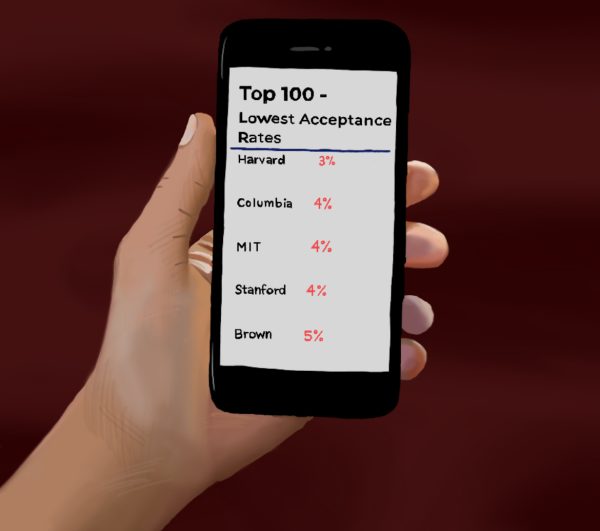Cell Phones Are Not Detrimental
Each new year brings a fresh start filled with new ideas and overly-ambitious resolutions. LHS’s plan for 2017 is to crack down on cell phone use within the building, and the administration plans to stick to it. The policy is simple: cell phones are not allowed anywhere in the building unless a teacher asks a student to use it for instructional purposes. If a faculty member sees a student using a cell phone inside, he or she is to take the device and give it to the main office where a parent has to come to pick it up at the end of the school day. Although students and teachers alike agree that cell phone use during class is as disrespectful as it is disruptive, there is much controversy over cell phone use during non-instructional time (i.e., in the cafeteria or library during off periods or in the passing time between classes).
At the Jan. 11 Board of Education meeting, seniors Kyle Hassig and Sarah Swerdin spoke in favor of revising the policy to allow cell phone use in the cafeteria and library. Swerdin spoke on behalf of the LHS Student Government Association (SGA). They both argued the educational benefits of cell phone use.
There are innumerable resources available online that have proven invaluable to students. “I want to be able to access PowerSchool during the day to keep up with my grades,” says freshman Sean Curley. Freshman Josh Blankstein adds, “I use Quizlet all the time to study.” In addition to these helpful resources, websites are often used as a medium for homework assignments on a daily basis. For example, many teachers assign question sets on Castle Learning, Webworks, and other such sites that students complete weekly for a grade. These assignments can be accessed easily on a mobile device, so students shouldn’t have to use a computer to do them, especially since a computer isn’t always available.
Unfortunately, the high school’s library is lacking the resources necessary to meet the needs of all the students that use it. The library is treated like all the other computer labs in the building. It is available for teachers to book for a period in order to work on projects and other activities with their classes. However, the library is the only place students can access computers during the day, while teachers are free to use any computer lab in the building for themselves or their classes. For whatever reason, whether it be limited availability or teacher preference, the library is booked fairly frequently. On many days, students looking to go to the library to do homework are left only with the eight extra computers not occupied by the class. And on other days, the sheer volume of students alone is enough to fill the library to capacity. The computers fill up quite quickly, so late-arriving students have to sign out the laptops from the cart which are quite decrepit in comparison to the other laptops available in the building. Then using the “new and improved” Windows 10, the student must wait sometimes 10 minutes to login. This process is unnecessarily time consuming. If students were allowed to use their phones, they wouldn’t have to deal with logging onto a computer, and moreover, less students would need to go on the computers which would free them up for tasks that actually require them. It’s not that the library is full every day, but the fact that students aren’t guaranteed the space to work is an issue. Students shouldn’t have to take the risk that on the one day an important project is due they might not be able to get a computer. As of now, the resources and space available in the library need to be improved, but if cell phones were allowed, it would eliminate the need to upgrade the library all together. Overall, the resources available are adequate when combined with the technology available on cell phones, but banning cell phone use in the library does more harm than good.
On the cell phone policy, Mary Kirby, SGA advisor, English teacher, and parent says, “I agree that there is a need for more resources in the library. However, I also believe that once the tablet initiative begins next year, it will resolve the conflict that the students are having with completing academic work during the school day for which they may depend on their smart phones to complete.”
Although the advantages cell phones provide as a supplement to class instruction are near indisputable, the administration argues that the social detriment of cell phones use outweighs its convenience. It is the belief of many adults and some students that social media is beginning to take the place of face-to-face interactions, leaving the modern-day teenager anti-social and addicted to his or her cell phone.
Cell phones are not detrimental to our ability to interact; in fact, they are an asset. A phone is a photo album, a newspaper, an iPod, a computer, a source of entertainment, a communication tool, and an educational tool all rolled into one. It’s insulting how grossly the administration underestimates students’ intentions when using their mobile devices. A phone is not a way to hide from the world; it is a way to experience it more than ever possible before. For example, I went to Cancun over the holiday break. On my first day back, during lunch, my friends noticed my tan which sparked a conversation about how our breaks went and what we all did. If I were to pull out my phone in this situation, the automatic assumption is that I am going to scroll through unimportant Instagram posts rather than engage with my friends. But in reality, I really just wanted to show my friends a video of me falling down during a water jetpack experience I had, but I never got the opportunity to do so while I was there to see their reactions. Phones serve as a way to supplement a conversation and enrich it. Rather than describe his new favorite song, my friend can take out his phone and have me listen to it for myself. When discussing a particular topic, politics for example, I can look up Trump’s economic policy or the latest news about him to enhance, not hinder a discussion. I can share a funny video or an interesting article: the possibilities are endless. And yes, of course, cell phones provide an easy way to hide from an awkward conversation or encounter, and yes, they can sometimes be a distraction from the real people sitting in front of us, but part of growing up is learning what is and is not appropriate in different social situations.
After graduation, students will need to be capable of applying not only their academic knowledge, but their social knowledge, too, which includes deciding how to use a cell phone appropriately. Furthermore, it’s not the responsibility of the Board of Education’s to micromanage students’ social lives, but rather, they should be creating policies that mirror the real world, and allow students to learn respectful cell phone use on their own. Guidance counselor Sue Moller agrees, saying, “Part of what we do in a high school is preparing kids for the adult world, and part of being an adult is knowing when to use a cell phone and when it’s inappropriate. Allowing cell phone use in the school in certain areas teaches students to use it responsibly. I don’t really see the issue with using the phone during off periods. If we let them use it but still enforce rules such as not talking rudely, using headphones, or taking videos, etc., then it will teach them what’s responsible for when they leave high school and enter the real world.”
There is a high level of integrity and maturity expected from LHS students both in and out of class, but you have to give respect to get it back. Lynbrook is a special place unlike any other. Our unique sense of community is a source of pride for everyone, so why does the administration generalize the student body based on nationwide studies as if we are just like everyone else? Just because research has shown that cell phone use can be detrimental to students’ sociability under certain conditions of excessive use does not mean that Lynbrook students are part of that population. As high school students on the cusp of adulthood, we should be trusted to use our phones respectfully and responsibly, and frankly the current policy is condescending. We are more than capable of realizing what constitutes appropriate use of cell phones in social situations, and banning cell phone use all together makes students feel like the administration thinks that we don’t know how to control ourselves when a phone is present. If we are expected to act like adults, we should be treated as such.
Next, considering phones solely as a communication device, there are several issues with the current plan. First, students need to contact their parents. Students are involved in all sorts of afterschool activities. Whether a student participates in clubs, sports, musical groups, extra help, honor societies, or others groups, the dates and times of meetings and practices change often. The majority of school announcements each morning and afternoon are clubs letting their members know that there’s a meeting. A student with two working parents and an intricate carpool system, such as myself, needs to be able to text his/her parent with information. “The administration doesn’t realize that we have responsibilities that require access to our phones at some point during the day for communication,” says junior Helen McGuire. In addition to parents, coaches, and teachers also need to contact students. In order to do so, they make use of school emails, Remind, a service that teachers can use to send messages via text to students about assignments or meetings, and GroupMe, a group messaging app. “We have other responsibilities besides school. Students with jobs need to contact their bosses,” adds senior Colleen Gallagher.
Overall, the policy needs to change. It is a step in the wrong direction. Mobile devices are going to become more prevalent in all aspects of society as time goes, so the already ten-year-old policy will only become more outdated. There are several small ways in which the policy can be improved. First, the fact that a parent has to retrieve a phone at the end of the day is insensitive and unnecessary. Getting a phone taken away is embarrassing enough for a student, and if a parent needs to be notified that a student breaking the rules, a simple phone call would suffice. There is no need to force parents to pick up their kids’ phones.
Second, phones should be allowed to be used in passing time, but only if a student gets to a classroom early, not in the halls. This will allow students to send a quick, but important email or text to a teacher or parent, but prevents them from texting and walking in the halls.
Third, the Wi-Fi should be made accessible to students. This way, social media and other inappropriate sites can be blocked. Obviously, students may choose not use the Wi-Fi, but data limits might persuade more students to use it than one might think.
Fourth, phones should be allowed in the library. This will free up computers and allow students to complete homework and study with ease.
Fifth, phones should be allowed in the cafeteria. They are extremely important parts of our lives, and no policy is going to change that. Furthermore, lunch should be a time that belongs to the students, and how they choose to use it should be up to them.
Lastly, consistent with the Dignity Act and all other policies regarding taking pictures of other students, cheating, etc. should still be respected. If students are disrupting classes or using phones inappropriately in any way, they should not be allowed the privilege of using a phone in school. However, every student should be given the benefit of the doubt; we should be innocent until proven guilty on our own, not by stereotypes.
In the end, both the student body and administration want what is best for the students, but since phones are essential for socialization, education, communication, and all other aspects of life, the current policy banning them is more harmful than helpful and needs to be changed.

I began participating in Horizon as a writer in my freshman year, and I was editor for A&E as a sophomore. As editor-in-chief of the website my junior...





































